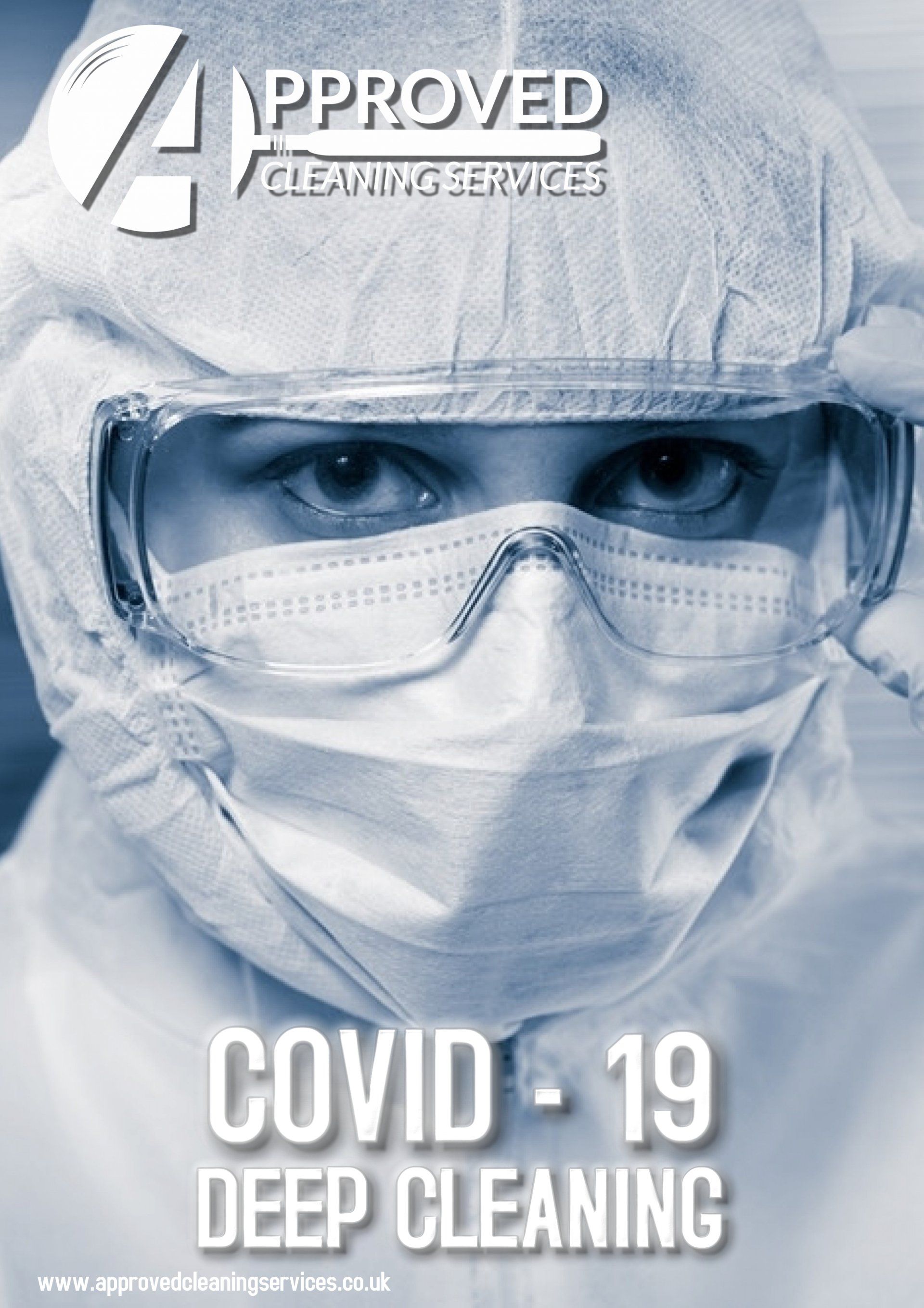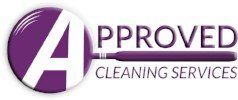COVID 19 DEEP CLEANS
TOGETHER WE CAN BEAT THIS
We at Approved as a cleaning service provider are eager to offer businesses a solution
to limiting the cross contamination in the workplace.
We have researched the correct chemicals and it is now well documented
that the ordinary antibacterial gels and soaps will not necessarily kill the virus,
the chemical needs to contain BS EN14476 (virucidal)
We have prepared a cleaning team of dedicated staff alongside
all necessary chemicals, equipment and PPE to perform a
COVID-19 deep clean.
Cleaning and disinfection
Public areas where a symptomatic individual has passed through and spent minimal time, such as corridors, but which are not visibly contaminated with body fluids can be cleaned thoroughly as normal.
All surfaces that the symptomatic person has come into contact with must be cleaned and disinfected, including:
objects which are visibly contaminated with body fluids
all potentially contaminated high-contact areas such as bathrooms, door handles, telephones, grab-rails in corridors and stairwells
Use disposable cloths or paper roll and disposable mop heads, to clean all hard surfaces, floors, chairs, door handles and sanitary fittings, following one of the options below:
use either a combined detergent disinfectant solution at a dilution of 1,000 parts per million available chlorine
a household detergent followed by disinfection (1000 ppm av.cl.). Follow manufacturer’s instructions for dilution, application and contact times for all detergents and disinfectants
if an alternative disinfectant is used within the organisation, this should be checked and ensure that it is effective against enveloped viruses
Avoid creating splashes and spray when cleaning.
Any cloths and mop heads used must be disposed of and should be put into waste bags as outlined below.
When items cannot be cleaned using detergents or laundered, for example, upholstered furniture and mattresses, steam cleaning should be used.
Any items that are heavily contaminated with body fluids and cannot be cleaned by washing should be disposed of.
If possible keep an area closed off and secure for 72 hours. After this time the amount of virus contamination will have decreased substantially and you can clean as normal with your usual products.
Waste
Waste from possible cases and cleaning of areas where possible cases have been (including disposable cloths and tissues):
Should be put in a plastic rubbish bag and tied when full.
The plastic bag should then be placed in a second bin bag and tied.
It should be put in a suitable and secure place and marked for storage until the individual’s test results are known.
Waste should be stored safely and kept away from children. You should not put your waste in communal waste areas until negative test results are known or the waste has been stored for at least 72 hours.
if the individual tests negative, this can be put in with the normal waste
if the individual tests positive, then store it for at least 72 hours and put in with the normal waste
If storage for at least 72 hours is not appropriate, arrange for collection as a Category B infectious waste either by your local waste collection authority if they currently collect your waste or otherwise by a specialist clinical waste contractor. They will supply you with orange clinical waste bags for you to place your bags into so the waste can be sent for appropriate treatment.














